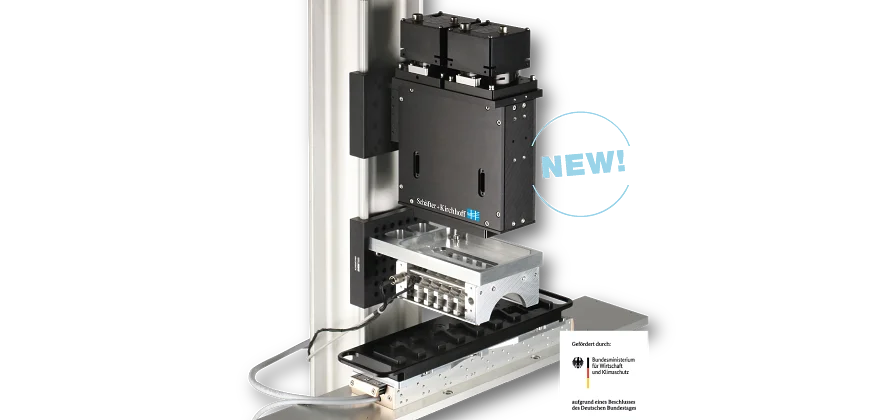New Product - AdheScan

AdheScan - Adhesive failure surface inspection system
AdheScan is the latest addition to Schäfter+Kirchhoff’s high quality inspection systems. It is an advanced, user-friendly comprehensive measurement system for the quantifiable, reliable and reproducible inspection of adhesive failure surface patterns. The system is designed to utilize expert knowledge in an objective and reproducible way. Bond Experts profit from ease of use as well as specially designed image acquisition in combination with trainable machine learning algorithms.
AdheScan is the latest addition to Schäfter+Kirchhoff’s high quality inspection systems. It is an advanced, user-friendly comprehensive measurement system for the quantifiable, reliable and reproducible inspection of adhesive failure surface patterns. The system is designed to utilize expert knowledge in an objective and reproducible way. Bond Experts profit from ease of use as well as specially designed image acquisition in combination with trainable machine learning algorithms.
Ease of use: Intuitive routines, high-resolution (11µm optical resolution), 3D height information (20 µm resolution) and 3D view of each fracture pair; scans of up to 8 fracture pairs in one scan
Quantifiable results: Quantifiable, reproducible results for adhesive fracture surface patterns. All results are logged and all relevant data is stored in a database for easy retrieval of previous results.
Comprehensive view: Both fracture partners are aligned using the alignment tool and then evaluated together for increased accuracy.
Annotation assistant: Bond Experts annotate the sample simultaneously in all 6 views, wherever a pattern is easiest to identify.
Advanced algorithms: Machine-leaning algorithm for fast and easy sample analysis. Even with only a few markers, the implemented algorithm can make a prediction for the entire image.
AdheScan is a further development of a demonstrator developed in cooperation with Fraunhofer IFAM (Department of Adhesion and Interface Research & Quality Assurance and Cyber-Physical Systems) in a project (SAMBA, 20Q1924A) publicly funded by the German Federal Ministry for Economic Affairs and Climate Action (BMWK). [more]